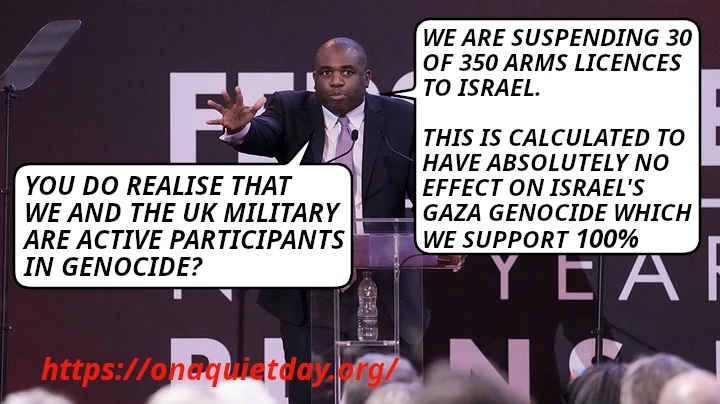This work by Middle East Monitor is licensed under a Creative Commons Attribution-NonCommercial-ShareAlike 4.0 International License.

by Adnan Hmidan
Public sentiment in Britain today is markedly different from what it was two years ago. A society that once observed developments in the Middle East from a comfortable distance is now expressing a clearer and more confident moral position on the genocide in Gaza. The scale of this shift can be considered one of the most significant transformations in British public attitudes towards Palestine in recent decades.
Figures published in the autumn of 2025 indicate that sympathy for Israel has fallen to approximately 12 percent, the lowest level recorded, while sympathy for Palestinians has risen to around 38 percent in some national polling. A majority of respondents also state that Israel’s actions in Gaza cannot be justified on either moral or legal grounds. However, these figures represent only the surface of a deeper transition taking place within British society.
The primary catalyst for this shift has not been political realignment, diplomatic pressure or changes within party leaderships, but rather the scale and visibility of the atrocities committed in Gaza. As the genocide expanded to include the targeting of hospitals, schools and refugee camps, alongside collective punishment and reports of widespread abuse in detention, traditional claims about self-defence lost credibility.
Red ribbons in London: A silent uprising bringing Palestinian hostages back into view
Unfiltered images circulated widely across British media and social platforms. Families killed in their homes, children pulled from the rubble and patients evacuated after power cuts became daily realities rather than distant headlines. For many, Palestine was no longer viewed as a remote political issue but as a profound human tragedy unfolding in real time. The collapse of official narratives in the face of visible evidence contributed further to this reassessment, reinforcing the understanding that what is taking place is not a symmetrical conflict but the systematic destruction of a besieged population.
Over the past two years, Britain has also witnessed an unprecedented wave of public mobilisation. London and other major cities saw some of the largest demonstrations in Western Europe, continuing week after week without subsiding. Solidarity evolved from street marches to university encampments, from civic spaces to trade unions and professional bodies, and eventually to parliamentary scrutiny concerning arms exports and the UK’s legal responsibilities.
Notably, this movement was not driven solely by Palestinians, Arabs or Muslims. Large numbers of students, academics, health workers, legal professionals, artists and members of the clergy took part. British Jewish groups opposing the genocide played an important role in challenging attempts to delegitimise or isolate the solidarity movement. Two years on, public mobilisation remains active despite increasingly restrictive protest regulations, indicating that this is not a temporary emotional response but a deeper shift in public conscience.
This evolving landscape has also reshaped how many Britons, particularly younger generations, understand the question of resistance. Public debate is no longer confined to simplistic binaries. There is growing recognition that resistance emerges from dispossession, blockade and the absence of any viable path to justice, rather than from ideological motivations alone.
READ: Why Israel’s blackmail over humanitarian aid reveals weakness and fear
Policy-makers in Britain are aware of these developments, even if official positions have not shifted dramatically. Pressure is visible in calls to suspend arms exports to Israel, demands for independent investigations into potential complicity and a noticeable shift in political language, especially within the Labour Party. The driving force behind this pressure has not been a change of government but the continuing reality of the genocide itself, which has made unconditional support for Israeli policies increasingly difficult to justify publicly.
The genocide in Gaza has reshaped how many people understand their place in the world. In Britain, solidarity with Palestine has become a reflection of moral responsibility rather than a peripheral political stance. Although the path ahead remains complex, the transformation witnessed over the past two years demonstrates that sustained exposure to reality can alter public attitudes in ways that once seemed unlikely.
The decline in sympathy for Israel marks not the conclusion of this shift, but its beginning. Palestine is no longer perceived as a distant or marginal issue, but as a central concern within British public consciousness — one that is unlikely to fade in the foreseeable future.
The views expressed in this article belong to the author and do not necessarily reflect the editorial policy of Middle East Monitor.
This work by Middle East Monitor is licensed under a Creative Commons Attribution-NonCommercial-ShareAlike 4.0 International License.


